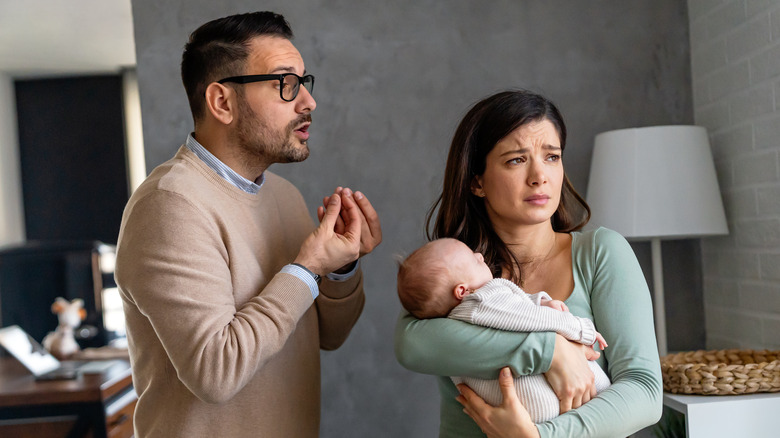The Stage Of Love That Few Relationships Actually Survive
There are several theories about lasting love and relationships, all attempting to work out why some romances last forever while others fizzle. One of the most famous ones comes from Dr. Helen Fisher, a neuroscientist and senior research fellow at the Kinsey Institute, and Dr. Lucy Brown, a clinical professor in neurology at the Einstein College of Medicine. According to the experts, beyond having a foundation of love, communication, and honesty, a truly rewarding relationship must make it through several benchmarks: The Euphoric Stage, The Early Attachment Stage, The Crisis Stage, and The Deep Attraction Stage. Each one represents a significant turning point for how each partner feels about each other and their relationship. Per Very Well Mind, first two stages are marked by infatuation and those hormone-driven feelings, as well as the pleasure centers being activated in our brains. Some might call this the 'honeymoon phase.' However, the crisis stage is when things start to get serious.
During the crisis stage, a couple may find the realities of life starting to affect their love, with the haze of romance having worn off. "As your relationship grows, your hormones will no longer be the driver of the feelings," Elizabeth Earnshaw, a licensed marriage and family therapist, explained to Psych Central. Because of the rose-colored glasses are off, it becomes an important time for testing whether your relationship is truly in it for the long haul.
As Dr. Lucy Brown explained to Very Well Mind, "Almost every relationship has a drift apart phase. Either you will keep drifting, or you will come back together." But only couples which have successfully made it through a crisis will then be able to move onto the final, or ultimate stage of their relationship. Of course, relationships move at different paces, so for some people this may happen outside of the five-to-seven-year mark, but it must happen to keep the relationship serious.
Most couples can't make it through a crisis
As all relationships are different, what happens in the crisis stage looks different to every couple. For some people, the crisis stage is marked by devastating incidents like the loss of a loved one or a betrayal, while for others, it might be big life changes like moving to a new city or getting a new job. This can also be the point some couples choose to have children, which is one of the biggest life changes a person can experience. Because these situations present couples with new challenges, they can really put a relationship to the test. This can be both practical, like figuring out how they're going to afford a new child or new place, or deciding who's going to quit their job to care for the family — to emotional ones, like being there for your parter when they're grieving.
Experts believe that if you're able to survive these changes and whatever fights that come with them, it ultimately brings you closer to the other person.
"You need a crisis to get through and to be able to talk about it together — you've both grown and changed," Dr. Lucy Brown explained to Very Well Mind.
Unfortunately, many couples fail to make it through this period. The crisis stage is also when people break down their walls and show parts of themselves they've never shown — including the ugly sides. Think of the saying that death brings out the worst in people. This can bring to light serious compatibility issues that were maybe overlooked during the initial stages of the relationship that force people into breaking up.
Putting in extra effort can help you make it through
Although every relationship is unique, one thing they have in common is that they require some level of work — for both parties. For some people, getting through the crisis stage could be as straightforward as making a conscious effort to let your partner know how much you love them and want to be with them. Elizabeth Earnshaw told Psych Central that when hormones are no longer the biggest driver in a relationship, "This means you need to be the driver of the feelings. You do this by actively choosing to be a loving partner."
Marlena Del Hierro, a licensed counselor added that showing your partner how much you appreciate them and giving them attention and affection can be a great way to progress past a crisis. "The strongest tip to actively choose love is to choose to look at the gratitude in a relationship," they said.
And, of course, maintaining open communication (no stonewalling here!) about how you're feeling should be a given, even if it's not the best. As psychologist and relationship specialist Dr. Zofia Czajkowska told Healthline, "Being open and honest about one's thoughts and intentions about the relationship itself and the future can restore — or newly create — a sense of safety."


